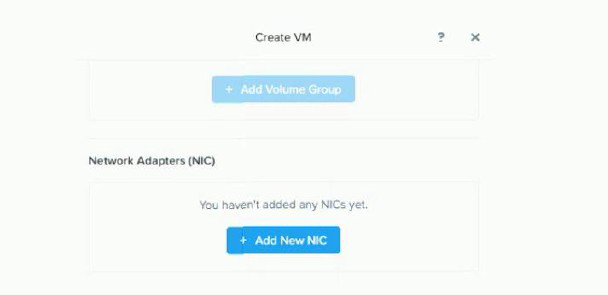| Page 5 out of 23 Pages |
Which Nutanix storage efficiency feature is suitable for nearly every workload?
A. Erasure Coding
B. Deduplication
C. Compression
D. Thick Provisioning
Explanation: Compression is a Nutanix storage efficiency feature that is suitable for nearly every workload, as it reduces the amount of data stored on disk without impacting performance. Erasure Coding, Deduplication, and Thick Provisioning are other storage efficiency features, but they have different trade-offs and use cases.
What is the minimum cluster size for Redundancy Factor 3?
A. 3 nodes
B. 4 nodes
C. 5 nodes
D. 6 nodes
Which VM-level feature ensures continuous availability of data?
A. Replication Factor
B. Data Locality
C. Data Protection
D. Deduplication
Explanation: Data Protection is a feature that ensures that data stored on a VM is
protected against data loss in the event of hardware failure, data corruption, or other
unexpected events. It typically includes features such as snapshots, replication, and
backup, which enable administrators to create multiple copies of data and store them in
different locations to provide redundancy and ensure availability.
Replication Factor is a related concept, but it is not a VM-level feature in and of itself.
Replication Factor is a setting that can be configured at the storage level to determine how
many copies of data are stored on different nodes in a distributed storage system. Data
Locality and Deduplication are also related concepts, but they do not directly ensure
continuous availability of data.
An organization runs several core business applications on a Nutanix cluster. System
stability and support are critical for these applications, which has an annual maintenance
window.
How can the administrator assure that these requirements are met?
A. Purchase Mission Critical support.
B. Purchase Ultimate licensing.
C. Adhere to the STS release cycle.
D. Adhere to the LTS release cycle.
Explanation: To assure system stability and support for critical applications running on a Nutanix cluster, the administrator can adhere to the LTS (Long Term Support) release cycle. LTS releases provide stability and long-term support, with a focus on maintenance and bug fixes rather than new features. This can help ensure that the system remains stable and supported during the annual maintenance window
Refer to the exhibit.

During VM creation, an administrator clicked on Add New NIC, but there is nothing in the
Network Name dropdown list. What is causing this issue?
A. No physical NICs have been allocated for user VMs
B. The nodes nave no NiCs attached to them
C. Only 1G NIC is attached to the Nutanix nodes
D. Only 1G NIC is attached to the Nutanix nodes
An administrator needs to expand a Nutanix cluster that is tagging the network traffic at the
CVM and AHV level. However, the administrator doesn't remember the configured VLAN
ID.
Which command can the administrator run to find the correct VLAN ID from the CVM?
A. ifconfig
B. manage-ovs
C. acli
D. ovs-vscl
Explanation: The manage-ovs command can be used to find the correct VLAN ID from the CVM, as it allows the administrator to view and configure network settings for Open vSwitch (OVS). The ifconfig command can be used to view network interfaces and IP addresses, but not VLAN IDs. The acli command can be used to manage Acropolis services and objects, but not network settings. The ovs-vsctl command can be used to view and configure OVS settings, but it is not available on the CVM.
| Page 5 out of 23 Pages |
| Previous |